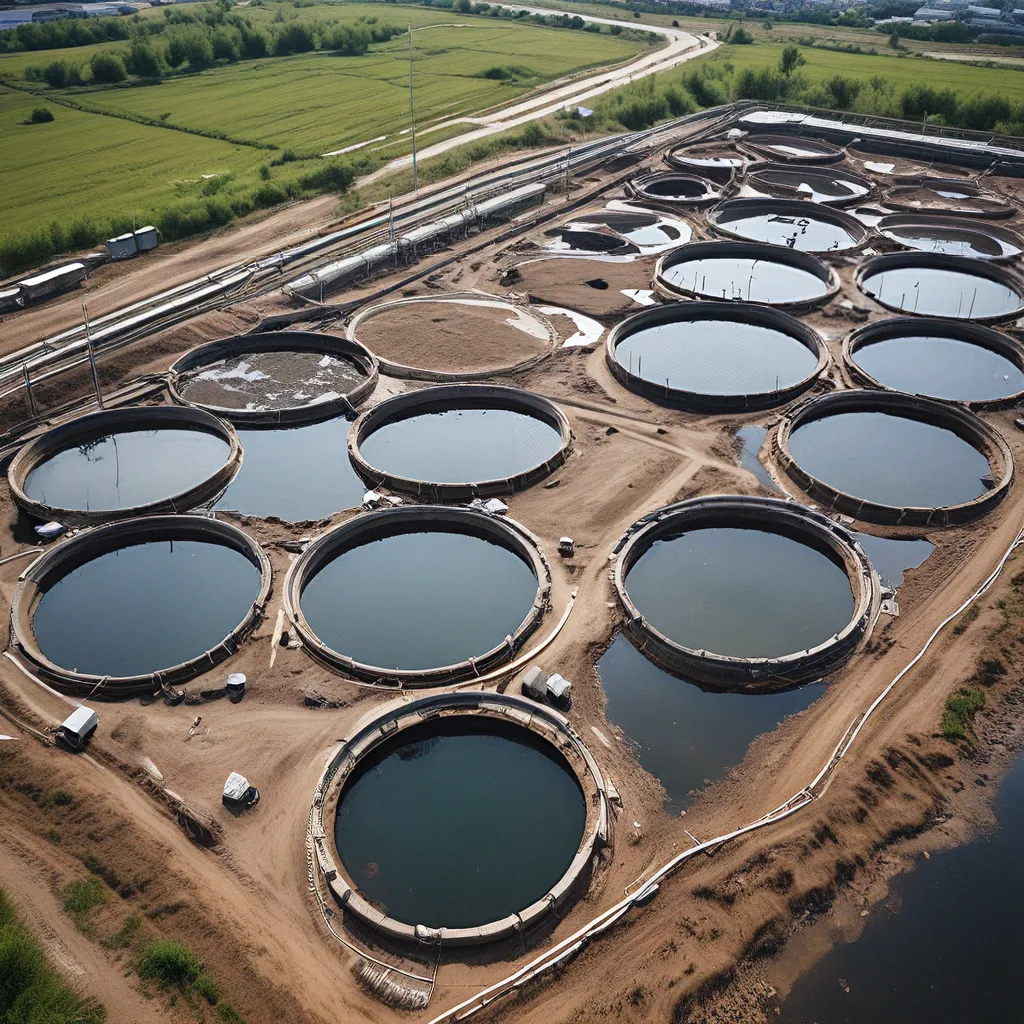
In the ever-evolving world of environmental sustainability, the wastewater treatment industry has undergone a remarkable transformation. Gone are the days when it was viewed merely as a necessary burden – today, this sector is at the forefront of the circular economy, pioneering innovative approaches that not only reduce waste but also harness valuable resources from the very effluent it once discarded.
Unlocking the Power of Renewable Energy
One of the most exciting advancements in wastewater treatment is the emergence of biogas as a renewable energy source. Through the process of anaerobic digestion, the organic matter in wastewater is transformed into a methane-rich biogas that can be used to generate electricity, heat, or even fuel. This not only provides a sustainable source of energy but also helps to offset the significant energy demands of traditional wastewater treatment methods.
As the experts at Stockholm’s wastewater treatment facility have demonstrated, this innovative approach to resource recovery is truly a game-changer. By harnessing the power of biogas, they have created a self-sustaining system that not only treats wastewater but also generates the energy needed to power the entire process. This not only reduces the facility’s carbon footprint but also provides a model for other municipalities to follow.
But the innovations in renewable energy don’t stop there. Solar-powered wastewater treatment is another exciting development that combines the power of the sun with the treatment of effluent. As DC Water has shown, this approach not only generates renewable energy but also helps to reduce the overall environmental impact of the treatment process.
Reclaiming Valuable Resources
While the focus on renewable energy is undoubtedly exciting, the true promise of the circular economy in wastewater treatment lies in the recovery of valuable resources. By extracting nutrients like phosphorous and nitrogen, as well as precious metals, the industry is transforming what was once seen as waste into a valuable commodity.
Scottish Water’s efforts to recover grit from wastewater for the construction industry are a prime example of this approach. By finding new uses for these byproducts, the company is not only reducing waste but also creating a sustainable source of materials for the circular economy.
But the benefits of resource recovery go far beyond the obvious economic gains. By closing the loop and reintroducing these valuable resources back into the system, we can dramatically reduce the environmental impact of resource extraction and processing. It’s a win-win for both the planet and the bottom line.
Overcoming the Challenges
Of course, the transition to a circular economy in wastewater treatment is not without its challenges. Implementing these innovative technologies and practices requires significant investment, both in terms of financial resources and infrastructure. Additionally, there are often regulatory hurdles to overcome, as policymakers and regulators grapple with the implications of this new approach.
As the experts at Our Future Waters have highlighted, the risks and opportunities of this mega-trend are still being actively studied and debated. It’s likely that the path forward will be marked by both successes and setbacks, as the industry works to navigate the complexities of this paradigm shift.
Embracing the Future
Yet, despite the challenges, the potential rewards of embracing the circular economy in wastewater treatment are simply too great to ignore. By harnessing the power of renewable energy and reclaiming valuable resources, we can create a more sustainable and resilient future – one in which waste is no longer a burden but a valuable commodity.
As the team at Alpha Wastewater can attest, this shift in mindset is already transforming the industry, and the future looks brighter than ever. So, let’s roll up our sleeves and dive in – the circular economy awaits, and the possibilities are endless.